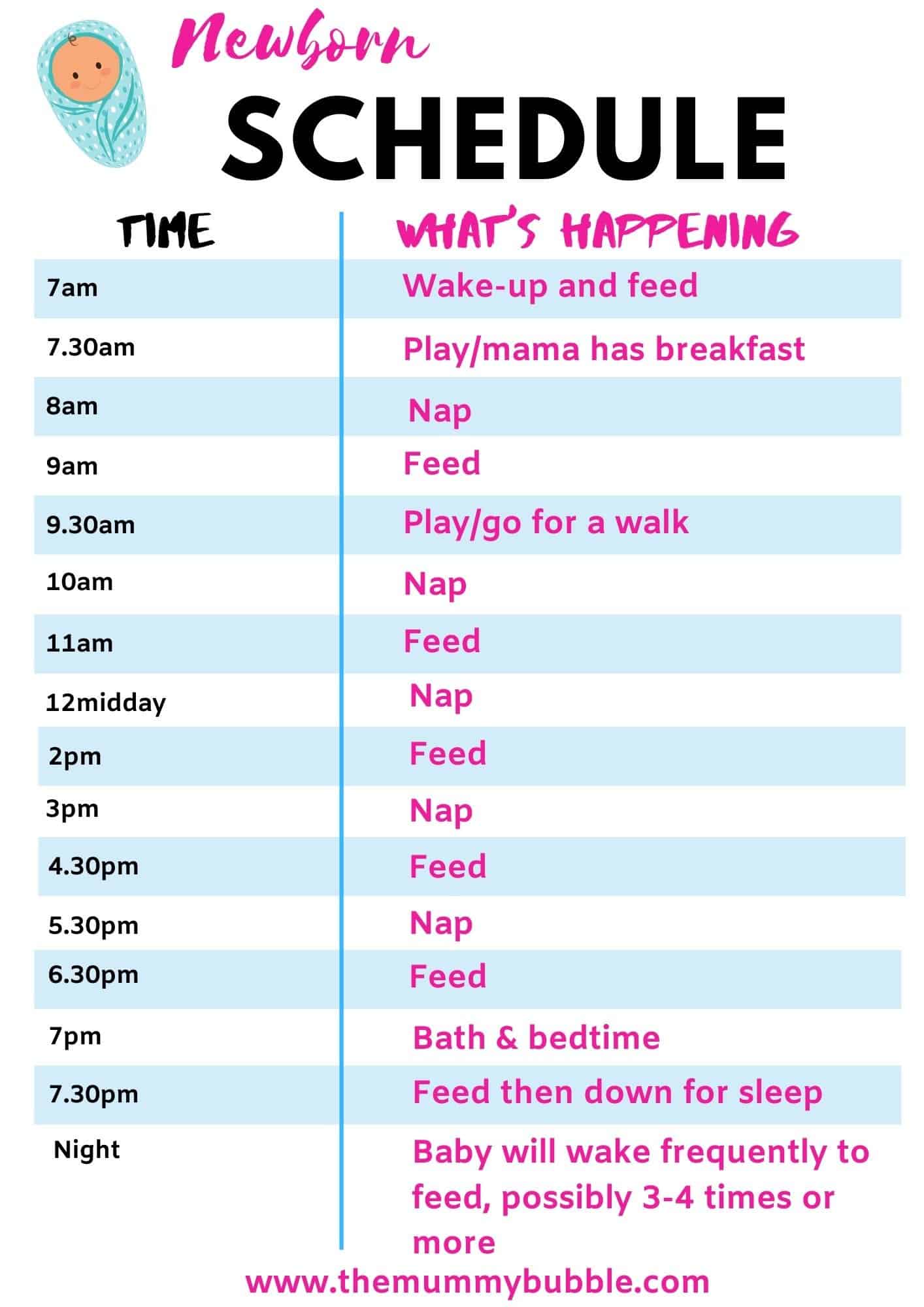0-10 minutes they start to fall asleep 10 to 20 minutes they are getting into deeper sleep 20 to 30 minutes they are heavily asleep 30 to 40 minutes they are coming out of heavy sleep and 40 to 50 or 60 minutes they are in light sleep and easy to wake up. Newborns need 14 to 17 hours of sleep a day 8 hours during the day and 8 at night but cant stay awake longer than 1 to 2 hours at a time and newborn sleep patterns change rapidly.
 Newborn Sleep Schedule By Week Cool Kids Hub
Newborn Sleep Schedule By Week Cool Kids Hub
But the range is considerable.

Newborn sleep hours. You should catch up on your sleep too. Babies dont typically sleep longer stretches until about 3. If playback doesnt begin shortly try restarting your device.
Some newborns sleep for up to four hours at a time. By age 3 to 4 months many babies sleep at least five hours at a time. But the length of nighttime sleep increases.
But they should be waking up for at least 8 to 12 feedings per 24. Highest Quality Baby Sleeping Bags at the Lowest PriceOrder now. Newborns usually sleep in short bursts of 2-3 hours each.
Newborns should get 1417 hours of sleep over a 24-hour period says the National Sleep Foundation. Newborns wake every couple of hours to eat. Highest Quality Baby Sleeping Bags at the Lowest PriceOrder now.
Videos you watch may be added to the TVs watch history and influence TV recommendations. Newborns typically split their 1417 hours of sleep between daytime and nighttime sleep though in small chunks of time. Generally newborns sleep about 8 to 9 hours in the daytime and about 8 hours at night.
Newborn babies sleep from 11 to 16 hours a day at all hours of the day and night. For the first two or three weeks after birth most babies do little but eat and sleep. But sleep patterns can vary a lot.
Baby will be sleeping anywhere from 14 to 17 out of every 24 hours give or take. Your babys sleep patterns may be unpredictable for a while and theres no need to put him on a sleep schedule just yet though there are some things you can do to. A healthy baby in this age range should get a total of about 14 to 17 hours of sleep over the course of a 24-hour day.
In the first few days the average newborn sleeps between 16-18 hours a day Iglowstein et al 2002. As a baby grows the total amount of sleep slowly decreases. Although the pattern might be erratic at first a more consistent sleep schedule will emerge as your baby matures and can go longer between feedings.
Some newborns may sleep up to 1819 hours a day. Shell typically snooze in short spurts of two to four hours waking to be fed burped changed and soothed. Sleep cycles typically last about 45 minutes to an hour for newborns.
In the first couple of weeks it is standard for a newborn to wake up to feed and then go right back to sleep. A newborn baby doesnt have much of a pattern to his sleep schedule. If newborns generally eat poop and sleep around the clock in the early days what does a newborns sleep schedule look like.
Newborn sleep times can vary widely. 14 to 17 hours of sleep within a 24-hour period though up to 22 hours is in the realm of normal for preemies. Newborns sleep 16 or more hours a day but often in stretches of just a few hours at a time.
Newborns 0 to 3 months. Newborns sleep for most of the day. The sleep is broken up between multiple naps during the day and anywhere from a few to several hours of sleep per night.
For newborns this is usually 14-17 hours in every 24 hours. Newborn to 3 months. Most newborns sleep in bursts of 3045 minutes to as long as 34 hours.
According to nested bean a newborn baby will need anywhere from 15 to 18 hours of sleep per day. Sleep typically happens in spurts during the day and at night sometimes lasting only an hour or two at a time. By four weeks newborn sleep averages about 14 hours.
But they may not sleep more than 1 to 2 hours at a time. To avoid this cancel. Your little one will probably only be awake for 30 minutes to an hour at a time and will nap anywhere from 15 minutes to three hours at a stretch.
This of course is not all at one time.
/is-it-ok-if-i-decide-to-pump-and-bottle-feed-my-baby-431746-01-1e2c0746a1c24128a2c230def56e55e2.png)
